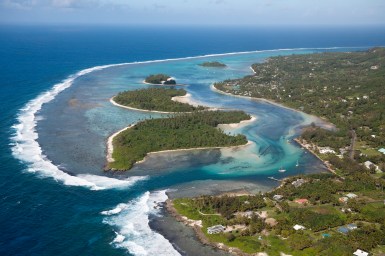Posts by CSIRO

Can water banking guard against a future ‘Day Zero’?
As the water count down continues to 'Day Zero' in regional centres in New South Wales and Queensland, how can science provide greater water security into the future?

Dr Ro Hill on the promise of Environmental Stewardship
With nature declining at an alarming rate, Dr Ro Hill spoke about the promise of environmental stewardship at her Bob Hawke Centre lecture in Adelaide.

The future of earth observations for Pacific Island nations
Satellites are transforming the way we see – and map – the Earth. That's especially the case in the Pacific where islands nations can benefit from satellite services – Earth Observations (EO) – to understand and manage the environment.

Knowledge, networks, politics: An island maps a better future
A PNG–Australian initiative to bring decision-makers together and give local communities a stronger voice in determining a sustainable future for their land and natural resources is bringing early results.

One ocean: A sustainable marine environment for healthy lives
The amount of ocean-derived protein consumed in countries in the Pacific Ocean is higher than in any other part of the world. Providing the best science to inform sustainable management of that resource is vital.

Mapping the seafloor of one of the world’s largest marine parks
The Coral Sea Marine Park is one of the world’s largest marine parks and vital to surrounding Pacific Island countries. A month-long voyage by Australia's research vessel to gather and share data and insights with international colleagues has begun, in pursuit of a better understanding of the area's geodynamic and climatic history, as well as biotic evolution.

Pacific faces crop yield declines, turns to past for modern solution
Climate change takes many headlines for threatening the Pacific. However, to secure the region’s shared food culture, soil scientists are working with Pacific farmers to provide precision agriculture tools that could herald a new era in regional farming.

Pacific partnerships blaze a trail for climate adaptation
Local knowledge and trusted, collaborative relationships with key stakeholders is helping researchers deliver the science that will enable Pacific nations communities to further build climate resilience.

Ozone uptake in oceans much lower than previously thought
CSIRO scientists have developed a new way to account for ozone in computer simulations of the climate. This latest modelling shows that the oceans take much less ozone out of the atmosphere than previously thought. This has implications not only for our understanding of future global warming, but also on human health, plant productivity and the economy.
